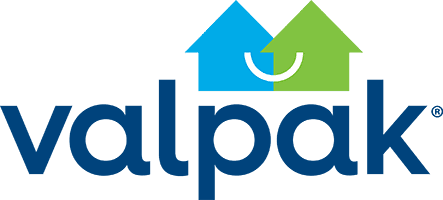People often think they have plenty of time to deal with issues like retirement and succession planning. Life, however, doesn’t always go as planned, so the earlier you prepare for the future, the better.
Unless you’re adept at denial, one day, you won’t be around anymore. And if you’re a small business owner, that means you need to have a plan for when that day comes, whether it’s tomorrow, or 50 years from now.
On a lighter note, one day, you might not want to run your business anymore. And if you don’t want to sell it, you’ll need a plan for what happens next.
We address the issues and solutions surrounding succession planning and retirement in greater detail in our Work-Life Balance e-book, but we’re going to touch on a few points here, just to get you thinking ahead.
Succession Planning
A vital aspect of small business ownership that ties into retirement: succession planning. Succession planning maps out what happens to your business when you are ready to step down from active ownership or if something unexpected prevents you from performing in your role as owner.
Only about 15% of small businesses have a formal, legal succession plan in place.
According to The Denver Post, succession planning should be a top priority for small business owners. The unexpected and unprepared for absence of the business owner can cause disastrous effects in a very short time, from which there may be no recovery.
Your successor can be a part of the succession planning process, which would make transition easier. You might also decide to release the reins of your role gradually as your successor demonstrates capability. It’s all up to you.
Here are some tips for creating your succession plan for your business.
- Treat it as more important than your most important project.
- Schedule ample time for planning the plan.
- List the skills and aptitude needed to fulfill your role.
- List your role responsibilities in detail.
- Keep a current and secure database of account numbers, login credentials, combinations, etc.
- Choose a successor for your role.
- Have your succession plan reviewed by legal counsel and notarized.
- Keep the succession plan in a secure place, but entrust someone with the location.
Things can get a little dicey when your family is involved in the succession planning. The Balance offers a little guidance for those situations. You can also find additional resources in our work/life balance e- book mentioned earlier. These will help you create a succession plan that covers all the bases, so you can breathe easier knowing everything is in place.
Retirement Planning
An alarming statistic revealed in a recent report from BMO Wealth Management indicated that, of business owners in the 45 to 64 age group, less than 35% had saved more than $100,000 toward retirement.
It’s not easy for small business owners (SBOs) to save for retirement. It’s fairly common for SBOs to skip taking care of themselves, let alone financially planning ahead for the future. The irony is that SBOs work hard and make sacrifices, forgoing self-care and saving, to create an ideal life for their families, yet in the end, are actually risking their secure future by putting these vital things off.
While retirement plans haven’t been easy for SBOs to acquire, let alone offer to employees, there are several resources available to offer guidance.
According to Fidelity Investments, you might consider the four types of retirement plans below. If you’re a smaller business, the first 3 would be better options for you.
- Simplified Employee Pension Plan (SEP IRA)
- Self-employed people
- Owners with any number of employees
- Contributions by employer only
- Tax deductible as business expense
- Savings Incentive Match Plan for Employees (SIMPLE IRA)
- 100 or fewer employees
- Employer and pre-tax employee contributions
- Tax deductible
- Self-Employed 401(k) plan
- Tax deferred plan
- Self-employed individuals
- No employees
- 401(k) plan (better for larger companies given setup costs, administration, fiduciary responsibilities, etc.)
Choosing a third party administrator (TPA) to manage your 401(k) is much like hiring an employee. MarketWatch offers tips on how to identify the right TPA for your business.
Remember, planning for retirement is important, even if you plan to keep working long past retirement age. Life is full of surprises and you don’t want to get caught off-guard.
Need help with your small business marketing? Contact your local Valpak representative today.




